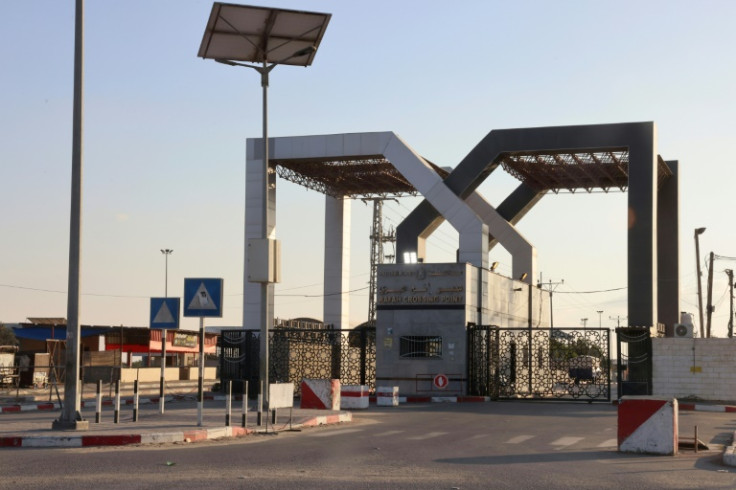Sunak Announces New Plan Of Action For Brits In Gaza, 'Reiterating the UK's Total Condemnation'
There have been ongoing discussions between the UK, US, Israel and Egypt to open the Rafah crossing to Palestinian, British and US nationals.

Today, Monday 16 October, Prime Minister Rishi Sunak addressed his Conservative MPs to set out a response to the current humanitarian crisis in Gaza.
The new plan of action comes after Foreign Secretary James Cleverly estimated that around 10 British nationals are being held hostage by Hamas in Gaza.
The meeting also marks the first time that Parliament has met since the month-long recess for the controversial party conference season.
Last week, the government also announced that around 60,000 UK nationals were believed to be in Israel or Gaza amid the brutal conflict.
Since Saturday 7 October, when the Israeli authorities formally declared war on Gaza, the UK government have not been shy about vocalising the nation's support of Israel.
While the British public continues to protest the hanging of the Israeli flag on governmental buildings, in his statement to Parliament, Sunak set out "the government's approach to the developing crisis" in Gaza.
In his speech, Sunak also focused on "reiterating the UK's total condemnation" of the attacks.
According to the Metropolitan Police, since the Israel-Palestine war escalated, there has been a "massive increase" in antisemitic behaviours across London.
After addressing the MPs, Sunak attended a Jewish school in North London, to demonstrate his "continued support for the Jewish community" and to reiterate the strict laws on religious hate crimes and his "zero-tolerance for antisemitic abuse".
After being questioned by a student who asked about whether the pro-Palestine protests are in support of Hamas, the UK Prime Minister said that considering Hamas is labelled a terrorist organisation in the UK, "it's very clear under the law that support for Hamas is illegal".
This is what the closed Rafah checkpoint on the border between Egypt and the Gaza Strip looks like now.
— Sprinter (@Sprinter99800) October 16, 2023
On one side are trucks with humanitarian aid, on the other side are Palestinian refugees, in the middle are machine-gun nests of Egyptian border guards.
Everyone is waiting… pic.twitter.com/Sun1u5IMV5
Despite already being criticised for having a biased outlook on the Israel-Palestine conflict, Sunak declared: "We're providing all the consular support through the Foreign Office that we can and also providing direct support to the Israelis."
Last week, the first flights from Gaza and Israel, facilitated by the UK government, arrived in Cyprus and the UK.
While working with Israeli air controllers and the air industry, the UK has been fighting to keep commercial air links and other transport services under review.
Amid the conflict that has killed almost 5,000 Palestinians and Israelis already, EasyJet, British Airways, Virgin Atlantic and Whizz Air, made the decision to cancel all flights between the UK and Israel.
While commercial flights remain limited, only a small number of routes between Europe and Israel are open.
The UK government has also been arranging flights from Israel, working with the Egyptian authorities to facilitate escapes from Gaza via the Rafah crossing.
The journey out of Gaza, which has seen more than one million people displaced by Israel's retaliatory and catastrophic air strikes, allows for British and dual nationals, their spouses and children, to leave the Strip.
The UK government also advised British and dual nationals to follow the IDF's (Israel Defence Force) warning that called for the population in Gaza to relocate to the south of the enclave.
On the Gaza side of the Rafah crossing, sources on the ground have reported a large crowd of Palestinians with foreign passports waiting to flee the enclave.
British nationals in the southern region have also been waiting for FCDO (Foreign, Commonwealth & Development Office) messages, which will alert them when the border into Egypt has been opened.
A spokesperson for the US State Department said that US nationals were also being advised to move toward the Rafah crossing in the south of Gaza, considering "there may be very little notice if the crossing opens and it may only open for a limited time".
In a statement, Foreign Secretary James Cleverly alluded to the crossing being opened and made it apparent that the UK has been working with Israel, Egypt and "other leading political voices in the region" to open the Rafah crossing.
© Copyright IBTimes 2025. All rights reserved.





















